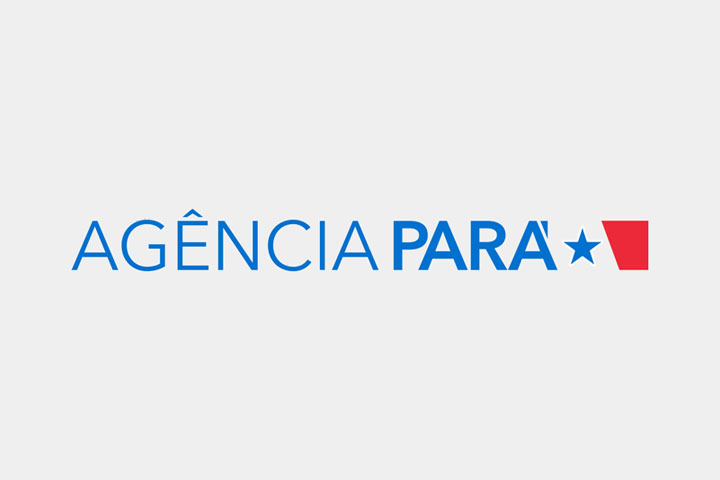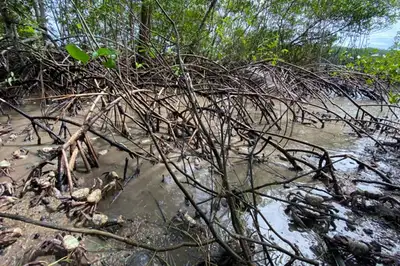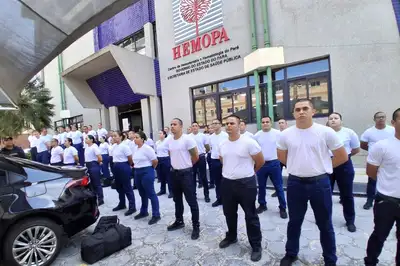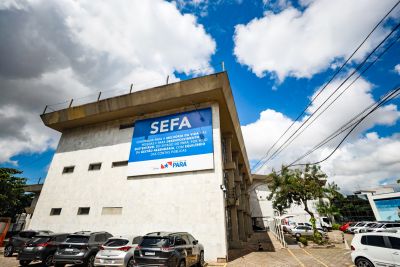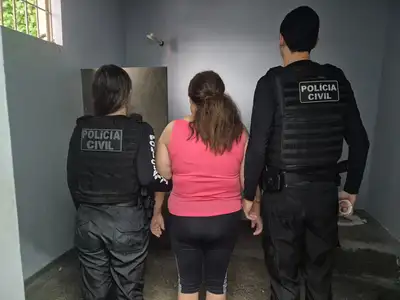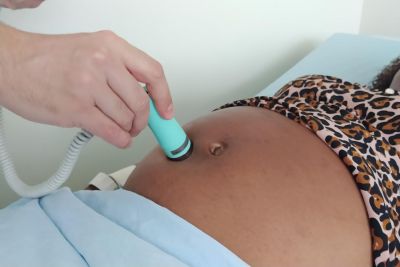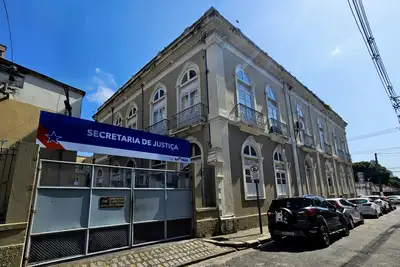‘Torch of Knowledge’ inspires students for Saeb 2025 in 18 state schools
The initiative aims to encourage students participating in the Saeb test, as well as reinforce the importance of collective effort and commitment to the quality of education

In a highly symbolic action, the State Department of Education (Seduc), through the Regional Teaching Directorate (DRE) Belém 05, initiated a mobilization that will cover 18 state schools. The initiative, which brings the "Torch of Knowledge", started at the José Bonifácio State School and aims to encourage students participating in the Basic Education Assessment System (Saeb) test, as well as reinforce the importance of collective effort and commitment to the quality of education.
The arrival was marked by a welcoming ceremony, featuring a motivational speech from the management team, cultural presentations organized by the students, and the symbolic moment of the collective oath of the students: "I strive, I learn, I achieve - Saeb 2025". This initiative aims to strengthen the engagement of the school community and encourage students to dedicate themselves with more confidence and enthusiasm to the assessment.
“We had very well-explained classes, in addition to activities with tests and questions similar to those of the Enem and other editions of the Saeb. I am preparing a lot. My sister has already taken this test and has inspired me a lot; I am sure it will work out, especially because we have great teachers, especially in Portuguese and Mathematics. Even though this torch is not like those giant trophies from the Champions League or the World Cup, it has enormous symbolic value. And just by representing something so important, it already serves as a great incentive for me,” says Helthon Pantoja, a 9th-grade student.
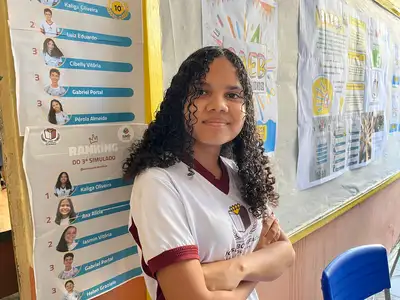
Student Kaliga Oliveira, from the 9th grade, has always participated in the activities proposed by the school unit, especially regarding the Basic Education Assessment. In the last simulations, she has stood out, ranking 1st in her class.
"Being in the ranking of the simulations is important because it encourages me to keep striving. The test serves to evaluate how students are doing and show the quality of the school's teaching, and when we achieve good grades, it demonstrates that the teaching is effective. This whole process will certainly contribute to my future, as the school team encourages us a lot. Moreover, the classes are dynamic, mixing theory and practice, which makes learning more interesting," highlights the student.
With the start of the school year, student motivation remains high, especially after the good performance in the last test. "Students started the year motivated, especially after the good performance in the last Saeb. They are competitive and always want to win, whether in competitions or simulations. We show the evolution graphs, highlighting correct answers and improvements, which is very gratifying, especially when seeing students who have improved so much. Additionally, we reward both those who stood out and those who have evolved the most, so that everyone feels special,” said Arielly Siqueira, a Mathematics teacher.
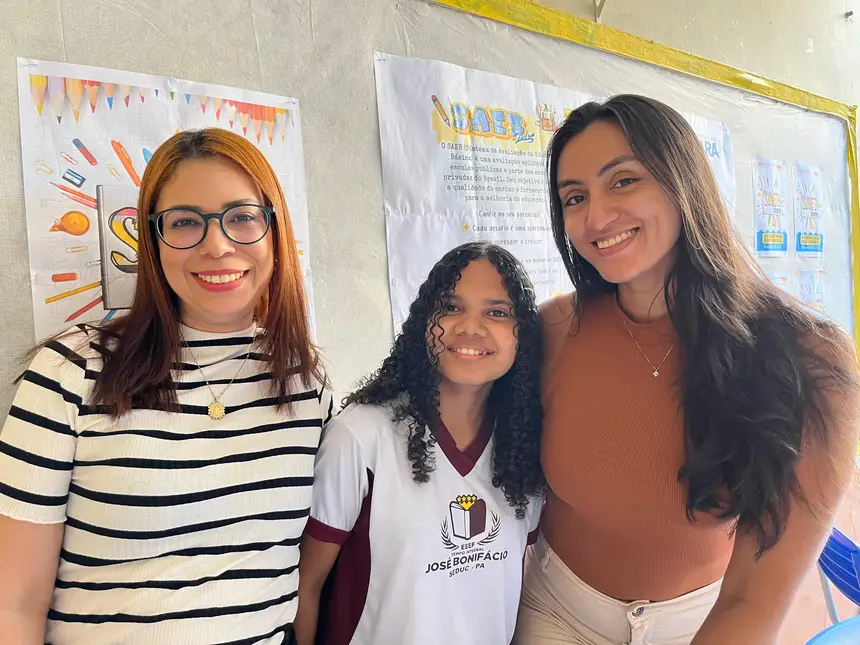
During the week that the “Torch of Knowledge” is at the school, a series of activities will be carried out with the aim of preparing students for Saeb 2025 in a dynamic and participatory way. Among the planned actions are the Study Shift, with reinforcement on the evaluated content; the Daily Challenge, which will bring questions and review dynamics with symbolic prizes; and the Overcoming Wall, where students can write their goals, messages of encouragement, and motivational phrases.
Another special activity is the Message of Fire, in which each class will leave a written message that will accompany the torch to the next school, creating a chain of inspiration among students. Physical Education and Arts teachers will also be invited to develop playful activities to increase the involvement of the school community.
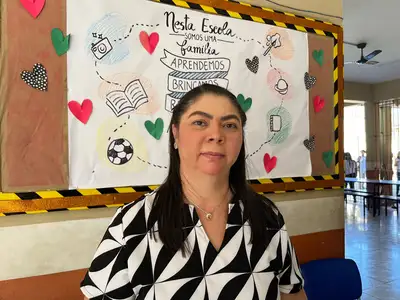
“This week, we received the Saeb torch, marking the beginning of activities for the sixth edition of Saeb. The program includes academic, relaxing, and inclusive activities, focusing on the well-being of students and strengthening the sense of teamwork and belonging. I observe with joy the engagement of the students, who show interest in participating in the activities. This reflects a good school climate, essential for our work. If we notice a change in this behavior, we are concerned about improving the environment and routine of the school, as this directly impacts their motivation,” says Ana Silva Gomes, the school principal.
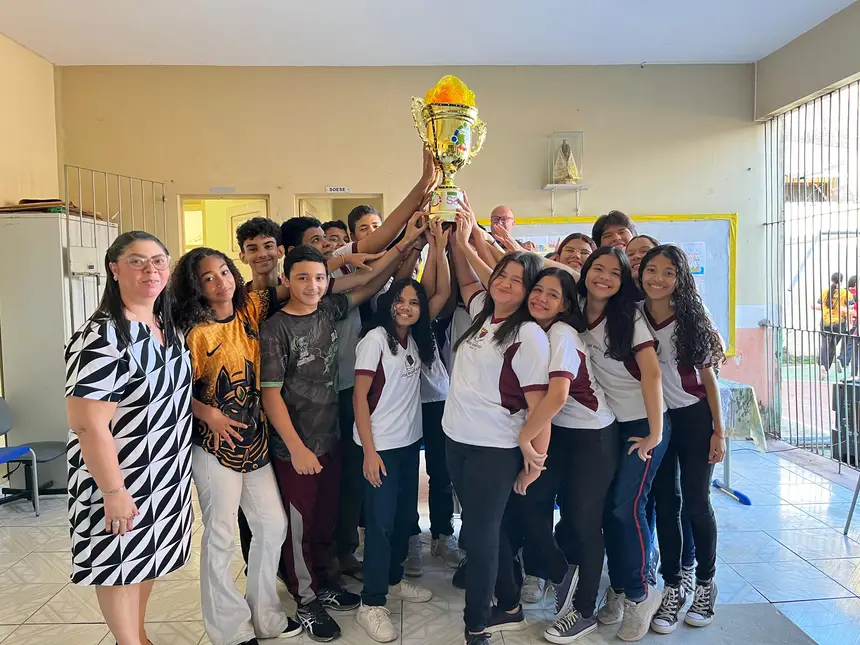
At the end of the week, a closing event will be held, marking the farewell of the torch with a symbolic ceremony of delivery to the next school on the route, which will be the Santos Dumont State School. During this moment, the students who stood out the most in the week's activities will be honored with medals or certificates, receiving the symbolic title of “Torch Guardian.” The ceremony will celebrate collective effort and reaffirm everyone's commitment to valuing learning and striving for better educational results.
Evolution of Ideb and the challenges for 2025
Created in 2007, Ideb brings together two essential indicators for education: school flow and average performance in assessments. The index is calculated based on school approval data from the School Census and the average performance of SAEB, being released every two years by the National Institute of Educational Studies and Research Anísio Teixeira (Inep), linked to the MEC.
In high school, the advancement of students from Pará was significant. In 2021, the state ranked second to last nationally (26th place). With the new sampling, it rose to 6th place, achieving an Ideb of 4.3. The challenge now is to maintain this evolution and consolidate state public education among the best in the country.
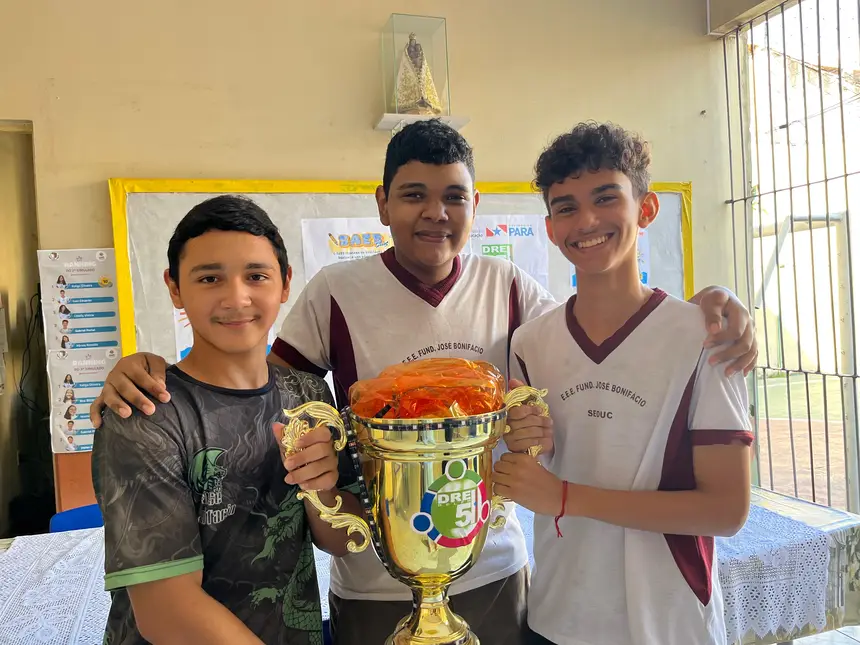
Saeb 2025: changes and impact on Ideb
The Basic Education Assessment System (Saeb) goes beyond a simple test: it measures student performance, influences Ideb, and guides the pedagogical planning of public schools. Administered every two years, it represents a challenge for educational institutions across the country.
Among the changes planned for 2025, the following stand out:
- Transition to matrices aligned with the National Common Curricular Base (BNCC) in the census Saeb (Portuguese Language and Mathematics for the 5th and 9th grades of Elementary School and 3rd and 4th grades of High School);
- Inclusion of tests and questionnaires in braille, as well as specialized assistance with a reader for 9th-grade students;
- Experimental application of constructed response items.


